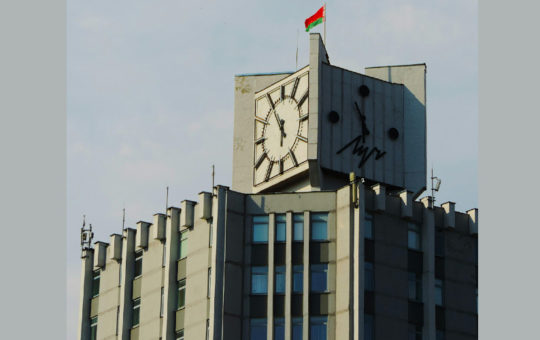
Introduction to the University of Exeter’s Pioneering Research on Eastern Europe and Eurasia
The University of Exeter has established a significant new research centre aimed at transforming the understanding of Eastern Europe and Eurasia. This initiative reflects a strategic commitment to interdisciplinary investigation and policy-relevant research in regions that are vital to global security and geopolitical stability. For students, academics, and policy professionals interested in the geopolitics, history, and cultural dynamics of these regions, the new research centre represents a valuable resource and collaborative platform.
Understanding the Goals of the New University of Exeter Research Centre
The primary objective of the centre is to challenge prevailing narratives and to develop nuanced perspectives on Eastern Europe and Eurasia. While traditional analyses may focus on conflict, politics, or economic instability, this centre emphasizes a comprehensive approach that incorporates culture, history, and social resilience. It aims to generate innovative insights that can influence academic discourse and inform policy-making at national and international levels.
Focus Areas and Research Expertise at the Centre
Culture as Resilience and Dissent
Researchers are exploring how cultural expressions serve as forms of resilience in countries such as Ukraine, Belarus, and Russia. Creative efforts—be it literature, music, or grassroots movements—offer community strength in periods of political upheaval and social unrest. Understanding these cultural dynamics helps build a richer picture of societal endurance beyond mere political discourse.
Networks of Corruption and Political Enablers in Central Asia
The centre also investigates how elite networks and corruption facilitate or hinder political stability. Analyses focus on the mechanisms of influence, the role of professional enablers, and international factors that sustain corruption, providing insights that are crucial for anti-corruption policies and governance reforms.
Historical and Conflict Studies
Historical research delves into patterns of violence, conflicts, and their legacies in Eastern Europe. This context allows scholars to understand current geopolitical tensions through the lens of historical developments, fostering a deeper understanding of regional crises.
Interdisciplinary Approach and Policy Impact
Bringing together experts from history, international relations, literature, law, and cultural studies, the centre’s multidisciplinary approach enhances the depth and breadth of analysis. It aims to produce research that is not only academically rigorous but also directly applicable to policymaking, supporting governments and international organizations in making informed decisions regarding regional stability and security.
Collaboration and Capacity Building
The centre emphasizes fostering collaboration among early-career researchers, postgraduate students, and international institutions. By creating opportunities for joint research projects, training programs, and academic exchanges, it contributes to building expertise and promoting regional stability through informed scholarship.
The Significance of this Initiative for Global Security
Eastern Europe and Eurasia are regions where local conflicts and political shifts have far-reaching implications for international security. The University of Exeter’s new research centre aims to provide fresh perspectives that can influence how policymakers and global actors address these challenges. By developing a more comprehensive understanding of the social, cultural, and historical factors at play, the centre’s work supports more effective, nuanced, and sustainable solutions.
Further Education and Career Opportunities
For students and early-career researchers with an interest in the region, the University of Exeter offers programs aligned with this research focus. Engaging with this centre provides opportunities for advanced study, research placements, and participation in policy-relevant projects.
A New Dawn for Scholarship on Eastern Europe and Eurasia
The University of Exeter’s initiative marks an important step towards a more comprehensive and critical understanding of regions that are often underrepresented or portrayed through simplistic narratives. Whether you are a student considering future studies, a researcher seeking collaboration, or a policymaker aiming for informed decision-making, this centre represents a valuable resource and a hub for innovative scholarship.
Ready to take your future to the next level?
Don’t miss your chance to be part of this success! Explore your course options and admissions requirements today — and start your journey with a university that’s rising fast and preparing students for success in the global job market. Fill out the form to get personalized guidance and take the next step toward studying at the University of Exeter with confidence.

